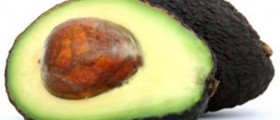
Hazelnut is the nut of the hazel plant. It is also known as filbert or cob nut, depending on the variety. Filbert is usually oval or round while cob is more elongated.
The largest producer of hazelnut in the world is Turkey, while in the United States it is primarily grown in Oregon and Washington. Other countries that are known for vast production of this nut include New Zealand, Chile and Australia.
Hazelnuts are mainly used to make desserts. They are an important ingredient of many cakes and cookies, and hazelnut paste is used in chocolate industry to make Nutella, chocolate truffles, nougat pralines and similar sweets.
Hazelnut oil is also used for cooking, and it has a distinct and pleasant flavor. Hazelnut butter, which is similar to peanut butter, is nutritious and satiating, and ground hazelnut is also one of the favorite condiments for coffee, mainly in hazelnut latte.
Aside from the flavor and deliciousness, hazelnuts are also very nutritious and offer several health benefits.
Hazelnut Nutrition Facts
The quantity of 100 grams or 3.5 oz of hazelnuts contains 628 calories, 61 grams of fat and 17 grams of carbohydrates, 15 grams of protein and 10 grams of dietary fiber.
The same amount offers 680 milligrams of potassium, 290 milligrams of phosphorus, 113 micrograms of folate, 114 milligrams of calcium, 4.7 milligrams of iron, 1.8 milligrams of vitamin B3, 0.11 milligrams of vitamin B2 and 0.6 milligrams of vitamin B1.
Hazelnut Health Benefits
Hazelnuts are a good source of essential fats. They provide only 4 percent of saturated fat, and the rest is unsaturated fats. They are also a great source of many important vitamins and minerals, especially B complex vitamins, calcium, potassium and iron.
Ancient Greek seemed to be well aware of health benefits of hazelnuts, and used them ground and combined with other ingredients, such as honey or black pepper, to cure cough, cold, and even to stimulate hair growth in bald people.
With their fat content of more than 60 percent, hazelnuts are a great source of energy. They are particularly recommended as breakfast food, for long walks and hiking and as travel food.
Vitamin E, which is present in hazelnuts, prevents oxidation of the polyunsaturated fats. Hazelnuts also contain oleic acid, a monounsaturated essential fat which is very helpful for people who have high cholesterol.
An amino acid called arginine can be found in hazelnuts too, and it protects the heart by helping the blood vessels to relax.
Hazelnuts are one of the few nuts that contain vitamin A, a powerful antioxidant.
Because of their folate content, hazelnuts are recommended for pregnant women and for women who are planning to start a family.
Hazelnuts have the highest proanthocyanidin content of all nuts. This compound reduces the risk of urinary tract infections and prevents blood clotting.

















Your thoughts on this
Loading...